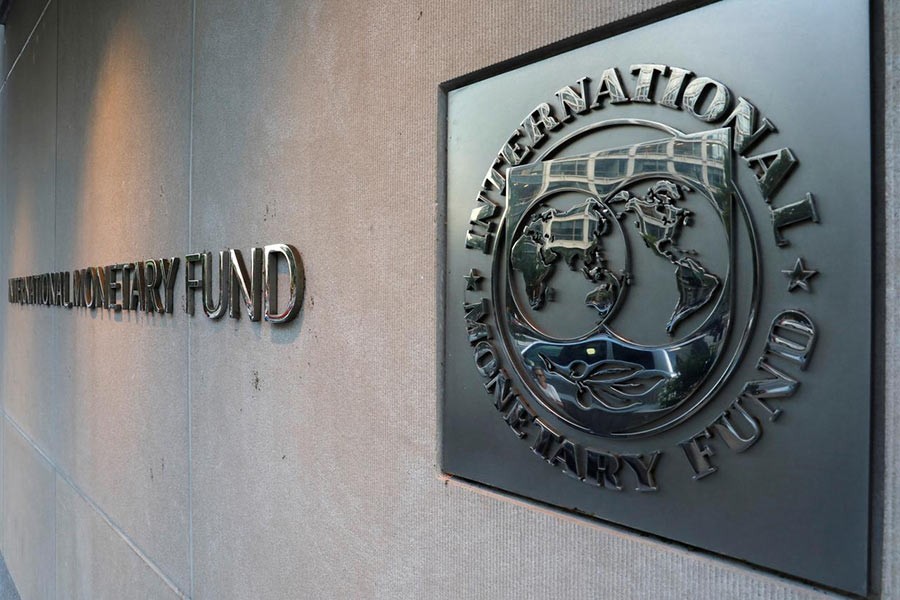Streamlining Bangladesh economy
Make revenue fiscal side a high national priority, says IMF

Published :
Updated :

The International Monetary Fund (IMF) on Thursday emphasised the need for making the revenue fiscal side "a high national priority" to streamline the economy of Bangladesh.
"Without (higher) revenue collection, it is very difficult to fix the banking sector, very difficult to tend to fiscal issues, including social spending," said Chris Papageorgiou, the IMF mission chief for Bangladesh.
He was briefing newsmen virtually at the end of the 2025 Article IV consultation and the fifth review of the IMF's Extended Credit Facility (ECF), Extended Fund Facility (EFF), and Resilience and Sustainability Facility (RSF).
Mr Papageorgiou said another IMF mission would visit Bangladesh in early May 2026 and consider whether to conduct the fifth and sixth reviews combined.
He said the IMF had been extensively pushing reform measures on value-added tax (VAT), structural measures, and the separation of policy and administration.
"…in the previous review, we have a set of very clear measures. And those measures, of course, we are keeping a record of how they are implemented. We have to say that for many reasons, the revenue collection has not been kept high," he said.
Mr Papageorgiou said Bangladesh's revenue-to-GDP was very low, one of the lowest around the world.
"So as we are thinking about progress and we are thinking about the future of the programme, we are having in mind recommendations for NBR - simple, fair, and bold reforms that will yield the revenues that are absolutely needed for the country."
He said the authorities had recognised the need for these measures, but the IMF wanted to see their implementation. "And of course, it is now up to the new authorities to take over and implement these big reforms."
"We emphasise that without revenues coming in at much higher levels than what they are right now, the fiscal space is not there to implement key reforms on, for example, capital investment, capital infrastructure, and building bridges and roads, but also on the social side," he said, replying to queries.
On inflation, he said, the IMF was expecting that inflation would come down at a much greater rate but it was "quite stubborn".
"And we are concerned, the governor is concerned, everybody is concerned that it is remaining at 8.0 per cent."
He supported the higher policy rate that the governor was now keeping because "this is the best way by which to combat the demand side of inflation".
Regarding the IMF team's meeting with political parties - the BNP and the Jamaat-e-Islami, Mr Papageorgiou said, "The intention is, of course, to have a constructive discussion about the IMF programme, to discuss potential reforms that are absolutely needed, and to hear their views about how they think of the programme...and what is their economic plan as we move ahead."
"I can say that both parties seemed very eager to listen. They were very positive on the IMF programme in particular, but also our collaboration with other international financial institutions."
He said they had also discussed a smooth transition to the next elected authorities.
"I think there will be a positive momentum. Everybody is expecting the newly elected authorities to be in power and with that, investment to come in place."
He said there were a lot of pent-up demands and "we are hoping that the new authorities will build on this positive momentum that will naturally be there".
"But we have also noticed, remarked that this window of opportunity will be there for a very short time. It will be there for one year, perhaps two years, before the political cycle starts kicking in," said Mr Papageorgiou.
Replying to another query, he said the IMF would like to see that the Bangladesh Bank continued to raise reserves and at the same time ensured the existence of the regime that was in place.
"We want to see the regime working, and also we want to see flexibility in the market as well."
Separately, the IMF in a press statement said the Bangladesh authorities had made progress in maintaining macroeconomic stability and advancing reforms.
"However, the economy continues to face mounting macro-financial challenges from weak tax revenue, financial sector vulnerabilities, and elevated inflation.
"Bold policies to address fiscal and financial sector challenges are critical to restore strong and inclusive growth, while safeguarding fiscal sustainability and macro-financial stability," it said, adding that downside risks remained significant, particularly if policy responses were delayed or inadequate.
"Over the medium term, comprehensive structural reforms to strengthen governance, curb youth unemployment, and promote economic diversification are essential to unlock Bangladesh's growth potential and achieve more inclusive development," added the lender.
The IMF also underscored continued efforts to strengthen anti-corruption measures and improve the AML/CFT framework.
IMF Resident Representative to Bangladesh Maxym Kryshko moderated the briefing.
syful-islam@outlook.com


 For all latest news, follow The Financial Express Google News channel.
For all latest news, follow The Financial Express Google News channel.